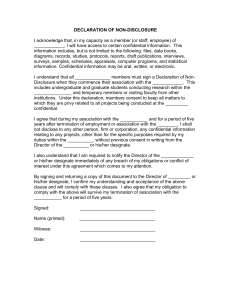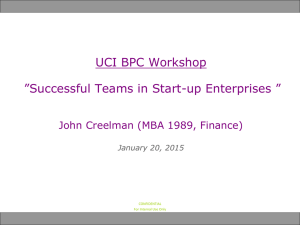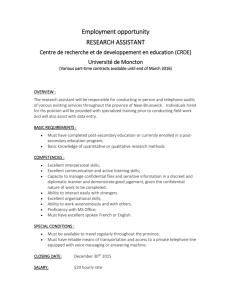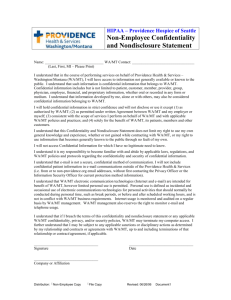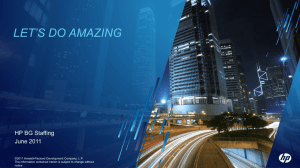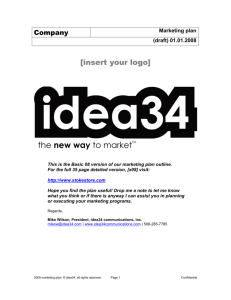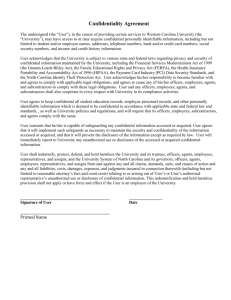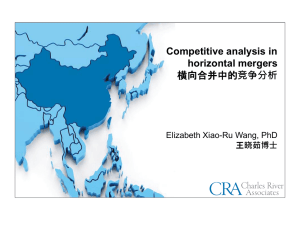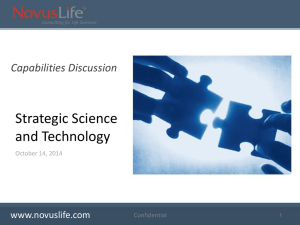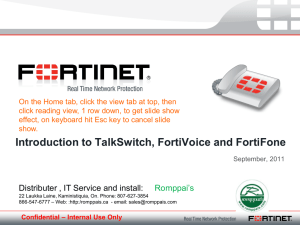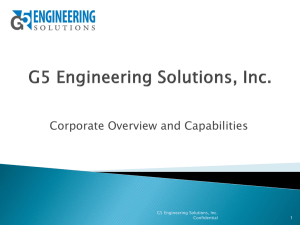Future of IT_ver2
advertisement
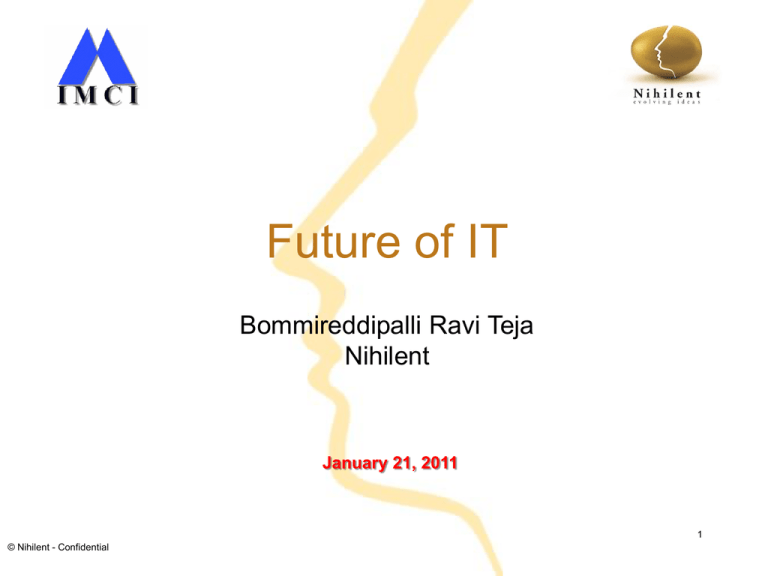
Future of IT Bommireddipalli Ravi Teja Nihilent January 21, 2011 1 © Nihilent - Confidential Living Systems Theory By definition, living systems are open, self-organizing systems that have the special characteristics of life and interact with their environment. 2 A Living Enterprise A living enterprise is sensitive to the environment it learns, innovates, adapts and manages the changing needs of its customers, citizens, employees and investors, within its business context, for the sole purpose of its survival and growth 3 Future economy • Agriculture Economy • Land, Resources and Labor • Individuals • Industrial Economy • Money and Machines • Workgroups • Knowledge Economy • Intangibles • Networks 4 21st century enterprise 5 © Nihilent - Confidential Peter Drucker said “The single most important thing to remember about any enterprise is that there are no results inside its walls. The result of a business is a satisfied customer. The purpose of business is to create and keep a customer.” 6 © Nihilent - Confidential Future enterprise With customers, employees, partners, vendors and agencies Open and boundary less markets Collaborative Open Customer Learning and Innovative Act as listening posts with everyone having an idea Influencing Anticipate customer needs & deeply connect to customer psyche 7 © Nihilent - Confidential Emotional connect with customer “A Great Brand taps into emotions. Emotions drive most, if not all, of our decisions. A brand reaches out with a powerful connecting experience. It’s an emotional connecting point that transcends the product. “A Great Brand is a story that’s never completely told. A brand is a metaphorical story that connects with something very deep - a fundamental appreciation of mythology. Stories create the emotional context people need to locate themselves in a larger experience.” Scott Bedbury/ Nike, Starbucks 8 Impact on IT Serving virtual, real-time driven, networked enterprises will mean substantial changes to IT The really big return on knowledge-based IT is building capability for the future. Verna Allee 9 Future of IT Social software When Social Software is understood as a comprehensive platform used in daily business…. then out of a hierarchical viewpoint comes… …complete transparency… …over experts, topics and… …(informal) networks….. So the right people meet… …and new ideas are developed together. Software as a service (SaaS) Future of IT is moving away from data center, system and infrastructure management and more toward business process improvement. SaaS provides organizations with ‘turn-key’ software solutions that can be implemented quickly, while avoiding infra costs & admin resources Mobile computing Mobile device would be the primary connection device (By 2015 almost 300 billion transactions worth more than US $ 860 billion will be conducted using mobile phone). Some of the services will include: Mobile Banking, Mobile trading, Mobile commerce, Mobile advertising and marketing, etc. Ubiquitous connectivity and interfaces Internet will be everywhere. It will be an additional layer connecting everything to everyone Keyboards and mouse will seem quaint. Touch, eye, voice and possibly even brain controllers will be commonplace 10 © Nihilent - Confidential Impact of IT on developing economies • Developing countries are proving to be partners eager to extent the IT market by becoming suppliers and investors in IT. • As suppliers, they are keen to take advantage of export-led growth (a la Asian economies) • As investors, they are providing the infrastructure for modern global business and life long learning • IT may help to reduce the gap for some of those who are disadvantaged or marginalized 11 Future of Indian IT • Thought capital of the world ? • Thought process outsourcing ? As Lao Tzu said in the 6th century B.C., “Those who have knowledge, don’t predict. Those who predict, don’t have knowledge.” 13 © Nihilent - Confidential Questions? © Nihilent - Confidential © Nihilent - Confidential 14 14

